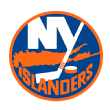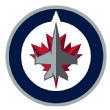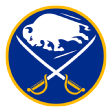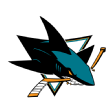The World Junior Championship is typically a showcase of the top drafted prospects outside the NHL. The under-20 age requirements for the tournament create an environment where players who are one or two years removed from being drafted are physically superior and more experienced to their equal or superior talented draft-eligible players -- thus giving them a significant edge. To wit, my tournament previews were littered mostly with drafted players. They are expected to dominate the event.
This year's event didn't turn out that way. It was due to a combination of factors:
The 1996 age group was never that impressive beyond a couple of standouts who are already contributing in the NHL, and the ones who remain outside the NHL are somewhat underwhelming as a whole
Several of the top drafted prospects slightly or significantly underperformed at the tournament
Several top-end draft eligible prospects put on a show
Here are my thoughts on the standouts, surprises and disappointments from this year's WJC, including a phenomenal performance from a particular line from the gold-medal winners.
A quick note that I didn't include David Pastrnak as a standout here, because he's a legitimate top-nine NHL forward for Boston, and his excellent performance when playing against this age group is not worthy of much further analysis.
The incredible Laine-Aho-Puljujarvi line
At the center of the standout performances was the top Finland line containing elite draft prospects Patrick Laine and Jesse Puljujarvi, centered by Carolina Hurricanes prospect Sebastian Aho. I don't remember the last time when an entire line was so young relative to the age group cutoff, yet dominated the way they did. Finland led the round-robin group with 23 goals scored. This line was on for 14 goals. That's more than Canada's whole team scored in the entire round, and tied with Russia. While some of that was shooting luck, all three players on that line were also among the shots on goal leaders at the tournament, too.
Puljujarvi is a ridiculously skilled and quick forward for a big man, and is a nightmare to check for those very reasons. Laine's a truck, with broad, strong shoulders and great balance. His puck skills are elite, he has a top-end shot and showed improvements in his skating. Both eradicated any doubt of their being top-5 picks this summer -- and arguably top 3. Puljujarvi was the youngest MVP in WJC history, and tied Eric Lindros for the second-highest scoring 17-year-old at the tournament with 17 points (Jaromir Jagr has the record, with 18 points). Laine finished third in scoring, with 13 points.
Aho is a do-everything forward who brings high-end speed and skill to the table, on top of showing very good defensive skills despite being a smaller player. He put an exclamation point on a great first half of the 2015-16 season, that has elevated him to being a top-end prospect in my eyes; he finished second in scoring at the tourney, with 14 points.
Standouts
Olli Juolevi, D, 2016 draft eligible
Tournament stats: 7 GP | 0 G | 9 A
I really didn't expect a ton from Juolevi at this tournament (playing as a 17-year-old defenseman). But as the tournament progressed, he was putting up top performances each game, and was eventually named to the All-Star team. His skating is high-end, and his hockey sense gets the highest grades. His poise with the puck and ability to evade pressure is elite. His defense was not perfect -- with the odd misstep and losing some battles -- but overall, it was above average. He's a no-doubt, top-10 prospect for me in this year's draft class.

Vladislav Kamenev, C, Nashville Predators
Tournament stats: 7 GP | 5 G | 1 A
Kamenev was a rock for the Russians, being an all-situations pivot who was solid just about every game. He's a highly skilled playmaker and finisher but also a strong, hard-working forward who grinds for pucks and makes plays in his own end. Kamenev is not your typical flash-and-dazzle, high-end Russian prospect, but he's of the same overall value because of his refined pro-style game and how effective he is. It won't be long before he's in Nashville.

Kasperi Kapanen, RW, Toronto Maple Leafs
Tournament stats: 7 GP | 2 G | 3 A
Kapanen's point totals weren't too gaudy (Golden Goal notwithstanding), but I was thoroughly impressed by his performance at the tournament. He was constantly making plays with the puck, dazzling with his speed and skill, but it seemed as if every chance he set up ended up right at the goaltender or getting some bad break. Kapanen is by no means a perfect player -- several NHL scouts I've talked to this season have criticized his play off the puck at times in the AHL -- but he can show dynamic talent.

Adrian Kempe, LW, Los Angeles Kings
Tournament stats: 7 GP | 3 G | 5 A
Kempe was Sweden's best forward, showing a refined pro game he has developed during his time in the AHL. His speed is elite, and he's one of the best skating forward prospects outside the NHL. He also displayed somewhat above-average playmaking and puck movement, a trait he hasn't shown often at other times. Kempe's shot is a plus tool, and he was able to execute on a few long-distance shots here. He's a solid top-six forward right now in the AHL, and could be with the Kings in the not-too-distant future.
Auston Matthews, C, 2016 draft eligible
Tournament stats: 7 GP | 7 G | 4 A
There are many colorful adjectives to describe the skill level Matthews showed at the World Juniors, but 95 percent of them would not make it past the ESPN copy desk. He was simply outstanding, being almost impossible to check because of his elite hands and offensive imagination, and when you combine that with a strong, tall frame he's nothing short of a nightmare for opposing defensemen. Matthews' performance continued to affirm his standing as the probable first overall selection in June.

Mitch Marner, C, Toronto Maple Leafs
Tournament stats: 5 GP | 4 G | 2 A
Marner was a little up and down at the tournament, but in totality he played very well. His skill level is rare, making the kind of plays around the puck you don't often see out of the typical "high-skill" forwards. He was caught trying to do a little too much at times, and could have been a little better off the puck, but overall he created space for scoring chances, got pucks to the net and was a slippery as an eel to check (I've never held an eel, but I've heard they're quite slippery).

Alex Nedeljkovic, G, Carolina Hurricanes
Tournament stats: 6 GP | 1.66 GAA | 0.943 SV%
Nedeljkovic was a huge part of the USA's bronze-medal finish, elevating the team when their roster was underperforming its talent level at times. He's undersized, but incredibly athletic and smart. His hockey IQ lets him know how to take up big parts of the net despite his size, and he made numerous standup saves by reading shots well off the stick.

Ivan Provorov, D, Philadelphia Flyers
Tournament stats: 7 GP | 0 G | 8 A
Provorov was Russia's top defenseman, a staple on their top power-play unit and displayed elite puck movement. His defense was a little hit-and-miss at times -- as an underage player, he showed his lack of strength and missed the odd assignment -- but overall, he was solid in his own end when you totaled up all his shifts. He has a distinct way of traveling around the ice, almost seeming to glide on his feet while looking up to make the tough plays. Provorov was one of the three best defenders at the tournament.

Linus Soderstrom, G, New York Islanders
Tournament stats: 5 GP | 1.42 GAA | 0.947 SV%
Soderstrom's WJC performance will be remembered for the game he absolutely stole from the Americans, propelling Sweden to the No. 1 seed in its group. Soderstrom is a pretty smart goaltender in terms of his reads and positional play, and is effectively aggressive with his challenges even though he's not a small player. His athleticism is not blow-you-away good, but he's able to get side to side fine.

Michael Spacek, C, Winnipeg Jets
Tournament stats: 5 GP | 2 G | 3 A
Spacek centered the top line for the Czech Republic and was a standout all tournament in that role, even in the game before David Pastrnak arrived. Spacek's combination of speed, puck skills and offensive IQ made him difficult to check. Spacek was exploding into open areas, making difficult passes and always finding a way to be around the puck.

Dylan Strome, C, Arizona Coyotes
Tournament stats: 5 GP | 4 G | 2 A
Strome was Canada's best player of their short tournament stint. He bleeds hockey sense, as he makes a ton of little plays that display how differently he thinks the game from other players. You saw him open passing and shooting lanes with fakes and in-tight moves that displayed his high-end talents. Strome was also a workhorse in battling for pucks, and when he got his chances, he displayed his plus shot.

Zach Werenski, D, Columbus Blue Jackets
Tournament stats: 7 GP | 2 G | 7 A
Werenski was nothing short of outstanding, and was the best defenseman at the tournament. He was everything that Team USA (who brought one of their worst defense units in years) needed him to be, an all-situations horse who made very few mistakes outside the semifinal game and moved the puck very well. He regularly played nearly 30 minutes per game, and in the semifinal, he was close to 40 minutes. His power-play decisions were great, he was solid in his own end and he generated a ton of attempts at the goal. This could very well be Werenski's final WJC, as he looks like a player who could challenge for a spot on Columbus next fall, should he elect to sign away from the University of Michigan.
Surprises

Will Borgen, D, Buffalo Sabres
Tournament stats: 7 GP | 0 G | 3 A
Borgen was a fourth-round pick last season out of high school who had never previously represented USA Hockey or even gone to an under-20 camp. We had notes on him as a decent prospect last summer, but his coming in and providing quality top-four minutes for the U.S. with less than 40 high-level hockey games played in his career was the shocker of the tournament for me. He skates well for a bigger player, showed very good hockey IQ making defensive stops and making outlet passes. His offense isn't high-end by any means, but he looks like a mid-tier NHL prospect.

Thomas Chabot, D, Ottawa Senators
Tournament stats: 5 GP | 0 G | 3 A
It's rare for a player who is not the caliber of a top-5 draft pick to step in and be a critical member of Team Canada as an underage player -- but Chabot did just that. He was a reliable part of Canada's top pairing, moving the puck very effectively using his skating and IQ, and was on their second power-play unit. In the game against Finland, it was his pairing (he skated with Detroit's Joe Hicketts) that was called upon the most often to play against the Finns' power line. Chabot's development path has been shooting up like a rocket during the past 18 months.

Jakob Forsbacka-Karlsson, C, Boston Bruins
Tournament stats: 7 GP | 1 G | 4 A
Aside from having one of the most inconvenient names to stitch onto a jersey, JFK was a solid two-way forward for the Swedes. He filled in on scoring-line minutes when William Nylander was injured, and while he obviously could not replace him, JFK was able to create some chances with his work ethic and hockey IQ. His skating seems better than when I saw him last year, and he was able to show some decent offensive creativity while also being a reliable penalty killer.

Christian Jaros, D, Ottawa Senators
Tournament stats: 5 GP | 1 G | 1 A
Jaros was expected to be one of Slovakia's best players coming into the tournament, but I did not expect him to be one of the better defensemen of the tournament, full stop. Jaros was everywhere in some games, displaying plus mobility (particularly for a big man) and solid two-way hockey IQ. He was a catalyst on the power play, won battles and showed a great ability to evade pressure.

Pavel Kraskovsky, C, Winnipeg Jets
Tournament stats: 7 GP | 2 G | 2 A
While Kraskovsky has not made as big a name for himself as some of the other players for Russia, he was among the top NHL prospects for Russia at forward here. He's a big center who showed above-average hands and vision, and is able to reliably play his position down the middle in all zones. He hasn't broken through in any league play or tournaments (he has three points in 32 KHL games this season), but he showed a lot here in terms of projectable NHL tools, and he's much more on the radar as an NHL prospect than he was a few weeks ago.

Aleksi Saarela, C, New York Rangers
Tournament stats: 7 GP | 4 G | 3 A
Saarela was never the best or second-best player for Finland in a given game, but he seemed to play well in every game of the tournament. His skating seemed better from when I saw him live last year, allowing him to use his above-average vision to play with a great pace and be part of a lot of scoring opportunities. He also has a above-average shot.

Dmytro Timashov, LW, Toronto Maple Leafs
Tournament stats: 7 GP | 2 G | 5 A
Timashov was not expected to have a huge role with this year's team. In fact, he was slated as a third-line player to start the tournament. However, injuries and other players not performing up to expectations led to increased ice time and responsibility, and he continued to play well. Timashov was Sweden's most dangerous forward in the open ice, displaying high-end offensive hockey sense and hands to create plenty of scoring chances. His diminutive size and lackluster skating could get exposed at times, but overall, he was dangerous and confident with the puck on his stick.
Disappointments

Brock Boeser, RW, Vancouver Canucks
Tournament stats: 7 GP | 1 G | 2 A
While I typically shy away from citing underage players like Boeser as disappointments -- it's unusual for them to be standouts -- Boeser set a high standard with his play at the summer and December camps, as well as an extremely strong first half of the NCAA season with North Dakota; in other words, expectations were high for him. In the entirety of the tournament, he created little offense, with some flashes of his skill and vision at times, but those times were rare. Boeser's lack of foot speed was exposed, and he seemed to be behind the pace generally. I still love him as a legit NHL prospect, but these past two weeks won't be the first thing he puts on his career highlight reel.

Brendan Perlini, LW, Arizona Coyotes
Tournament stats: 5 GP | 0 G | 0 A
Perlini never really got into a groove for Canada, despite a lot of time on ice and playing with good linemates. He got a chance here or there but wasn't individually creating with his top-end speed and hands like he does in the OHL. His hockey IQ has always been a flaw in his game, and he was behind in his reads and reactions here. He just never seemed to be in the right place at the right time, or making the right play.

Timo Meier, LW, San Jose Sharks
Tournament stats: 6 GP | 2 G | 3 A
I feel I'm always on the wrong end of the Timo Meier evaluation. I was overly critical of him going into his draft season, and right as I was ready to tab him a top 10-15 prospect outside the NHL, he goes and lays a giant egg of a performance in the round robin. Meier's speed was evident all tournament, gaining the zone consistently and beating players to the outside, but when it came time to move the puck horizontally, he never showed the instincts to make those plays. I don't know what to make of Meier, especially after he has looked very impressive when I've seen him play QMJHL games this season.

Evgeny Svechnikov, RW, Detroit Red Wings
Tournament stats: 7 GP | 0 G | 0 A
Svechnikov didn't play as badly as his stats suggest, but it was certainly an underwhelming performance. He lost a lot of his battles, his lack of speed was exposed, and he seemed to cough up a lot of pucks. On the other hand, it seemed every skill play he made resulted with a shot or pass hitting a leg, and he did show you skills that in the long term should translate to offense. Overall though, a very forgettable two weeks for Svechnikov, who was so great against this age group two years ago.

Jake Virtanen, RW, Vancouver Canucks
Tournament stats: 5 GP | 0 G | 1 A
I feel like I'm piling on the poor guy (and the Vancouver fan base) after the onslaught he got the last week or so. There were high expectations on Virtanen as a loaned NHL player -- although there's an argument that he shouldn't have been in the NHL this season to begin with -- and he didn't create a ton for Canada offensively. His high-end speed, physicality and decent skill level did contribute to getting shots to the net, but it seemed as if he never got a bounce or a call to go his way. On top of that, he was the victim of several undisciplined penalties.

William Nylander, C, Toronto Maple Leafs
Tournament stats: 1 GP | 1 G | 0 A
He only scored one point in the tournament. What a bum. [Editor's note: Nylander was shut down after sustaining a head injury in Sweden's first game.]
